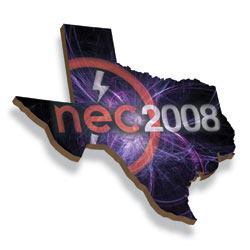About two months ago, Reed Hartzog entered an exclusive fraternity.
The owner of Reed’s Pool Service in Sugarland, Texas, had become one of the first pool service technicians to pass the state’s Residential Appliance Installer Licensing exam.
What’s even more unusual: He nailed it on the first try.
“It’s definitely not the easiest thing in the world,” Hartzog said of the four-hour test now required of anyone who handles electrical service or maintenance on pools and spas. “I know a lot of guys are putting it off because everyone’s afraid of it.”
The exam, a new condition of licensing under the Texas Department of Licensing and Regulation, technically was mandated for service techs as of March 1. But changes were being made to the test through late February, so a grace period is expected.
Still, that could change at any time, and service techs are encouraged to apply for the license and schedule their tests as soon as possible. Fines for working without a license typically start at $500 per incident per day, reported APEC, a pool and spa industry advocacy group based in Austin, Texas.
Meanwhile, most have struggled with the test, which is based almost entirely on the 2008 National Electrical Code handbook. Service professionals contend the 80-question, open-book exam actually deals very little with pool and spa maintenance and repair, and three-quarters of the questions reportedly cover non-pool-related topics such as wiring and wattage of refrigerators, ovens and garbage disposals.
“It’s not really what you know about pool and spa equipment. It’s about what you can find in the book,” said Kevin Tucker, APEC’s public information officer.
Others bristle over having to study for, and pass, a test after decades of accident-free work in the field. And at $63 per exam — and $200 to $300 for prep courses — cost suddenly becomes an added consideration.
That said, a number of service pros still believe the exam ultimately will benefit the industry in the long term. After all, continuing education and keeping abreast of the latest terminology and equipment can’t be all bad, said Douglas Dinkins, president of APEC and owner of Spa Inspector in Houston.
“I think our industry isn’t enjoying having its feet held to the fire,” added Dinkins, who is also treasurer of IPSSA’s Houston Chapter. “But I really believe they’ve given us all the tools to pass it. You just have to get comfortable with it.
“The bottom line is, it’s good for the consumer, it’s good for the industry, and it’s good for the state of Texas.”




